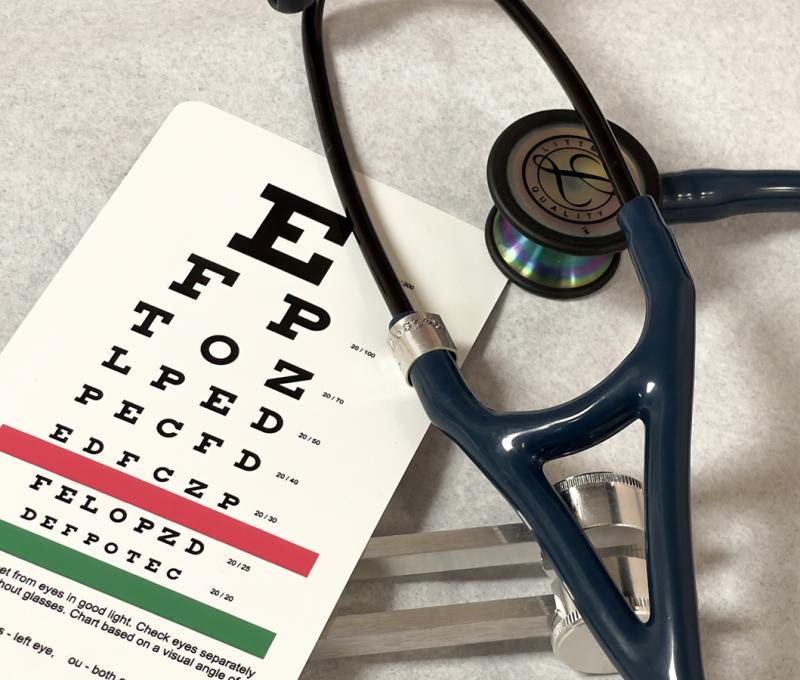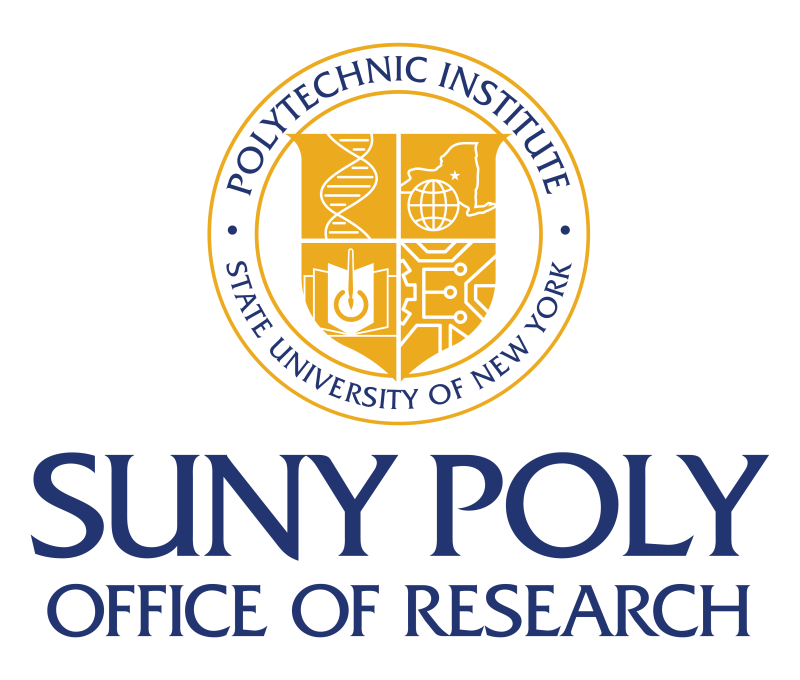Newly Merged SUNY CNSE/SUNYIT, in Partnership with the National
Institute
for Occupational Safety and Health, Developing Workplace Strategies
for the
Safe Use of Nanomaterials

Safe Nano Design Workshop held at SUNY NanoCollege, among other joint efforts, contributes to NIOSH report detailing ways to design safer work environments
Albany, NY – The newly merged SUNY College of Nanoscale Science and Engineering (CNSE) / SUNY Institute of Technology (SUNYIT) institution announced today that in partnership with the National Institute for Occupational Safety and Health (NIOSH), its cutting-edge nanomaterials-based environmental health and safety (EHS) research has contributed to the recently released NIOSH report, “The State of the National Initiative on Prevention Through Design.” The report aims to eliminate occupational hazards and protect workers through the evaluation and design of safer workplaces, tools, processes, and materials across a number of sectors, including the growing nanotechnology field, where the newly merged CNSE/SUNYIT has been leading efforts to investigate the human and environmental impacts of nanomaterials.
“Supporting Governor Andrew M. Cuomo’s vision to establish New York State as the global leader in high-tech R&D, we have been thrilled to work with NIOSH to conduct the research necessary to evaluate the best practices for the nanotechnology industry in order to maintain safe work environments,” said Dr. Sara Brenner, Assistant Vice President for NanoHealth Initiatives and Assistant Professor of Nanobioscience at the newly merged CNSE/SUNYIT. “This NIOSH report underscores the importance of ongoing research to fully understand each workplace variable, including the various nanomaterials that are currently being used. The findings will help mitigate potential hazards and enable the continued development of cutting-edge technologies.”
The newly merged CNSE/SUNYIT has partnered with NIOSH since 2010, and discussions are currently underway to extend that partnership to further promote occupational health and safety research, as well as educational and business initiatives leading to new findings and recommendations related to the potential human health impacts of exposure to engineered nanomaterials. As a testament to this partnership, NIOSH utilized the newly merged CNSE/SUNYIT’s cutting-edge nanomaterials research in their Prevention through Design initiative (PtD) report, which was also bolstered by the results of presentations and discussions that were held at the $20 billion Albany NanoTech Complex in August 2012 as part of NIOSH’s “Safe Nano Design Workshop.” The workshop focused on the PtD initiative, launched in 2007, to design out occupational hazards through the reduction of nano molecule toxicity and the simultaneous preservation of function; detection of nanomaterials; and implementation of controls; among other topics.
The NIOSH report concluded that by implementing PtD strategies throughout the nanotechnology-based production process, the greatest workplace safety rewards can be achieved through the manipulation of nanomaterials to reduce or eliminate any potential adverse effects, in combination with the implementation of a number of approaches at the process level. NIOSH intends to continue the initiative for another five years to further address program objectives and meet stakeholder needs.
“This report is a critical milestone in the development of further health and safety standards for workers in the diverse industries that it addresses, and NIOSH is excited to partner with the newly merged SUNY CNSE/SUNYIT to empower companies and other organizations to maximize workplace safety based on the elimination of production process variables that result from this industry’s uniquely new and dynamic status,” said CDC-NIOSH Nanotechnology Research Center Coordinator Dr. Charles Geraci. “We are proud that this collaborative work—based on a proactive, research-based approach—will provide a blueprint for improving EHS outcomes while decreasing business uncertainty.”
The NanoHealth & Safety Center (NSC), based at the newly merged CNSE/SUNYIT’s Albany NanoTech Complex, maintains a research portfolio that supports NIOSH’s nanomaterials safety efforts and spans many areas of interest to both the semiconductor industry, as well as the health and safety community at large. Currently, specific NSC projects include occupational exposure assessment for engineered nanomaterials; development of analytical tools for nanomaterial identification and characterization in the workplace; wastewater remediation; nanomaterial kinetics and transport through waste streams (environmental health); health effects of inhalation and cutaneous (skin) exposure to engineered nanomaterials; and cell-based nanotoxicity research. In collaboration with industry, academia, and government, this work leverages the newly merged CNSE/SUNYIT’s state-of-the-art facilities, including access to some of the most advanced scientific equipment available, including a Hyperspectral Imaging, or dark-field, microscope which NanoCollege researchers are exploring as a method for more rapid, higher-throughput nanomaterial screening.
As the NanoHealth & Safety Center plays a defining role in the development of nanotechnology-based industry EHS guidelines and supports NIOSH’s mission, research will include the development of sampling strategies, analytical methods, and validated protocols to conduct air and surface assessments specifically for the nanotechnology workforce. This revolutionary approach is leading to the development and real-time implementation of the tools and strategies necessary to facilitate health and safety research for emerging, advanced materials. In addition to enhancing workplace and environmental safety, the newly merged CNSE/SUNYIT research, combined with the extensive work undertaken by NIOSH, will also lead to the creation of educational modules and textbooks which can be utilized by NIOSH’s college and university partners throughout the United States to teach students the latest EHS findings and the ways to implement the recommended EHS strategies in a proactive manner.
NIOSH, an agency within the U.S. Centers for Disease Control and Prevention, conducts research and makes recommendations to prevent worker injury and illness. NIOSH produces new scientific knowledge and provides practical solutions that are vital to reducing risks of injury and death in traditional industries, in addition to supporting research to predict, prevent, and address emerging problems that arise from dramatic changes in the 21st Century workplace and workforce.
To read the full NIOSH report, “The State of the National Initiative on Prevention Through Design,” please visit: http://www.cdc.gov/niosh/docs/2014-123/pdfs/2014-123.pdf.
For more information about the Safe Nano Design Workshop, please visit: http://www.sunycnse.com/Outreach/NIOSHPresentations.aspx.
For more information about the newly merged CNSE/SUNYIT NanoHealth & Safety Center (NSC), please visit: http://www.sunycnse.com/LeadingEdgeResearchandDevelopment/CNSEResearchCentersPrograms/NanoHealthandSafetyCenter.aspx .
####################
About SUNY CNSE. The SUNY College of Nanoscale Science and Engineering (CNSE) is the world leader in the emerging disciplines of nanoscience, nanoengineering, nanobioscience, and nanoeconomics. CNSE represents the world’s most advanced university-driven research enterprise, with more than $20 billion in high-tech investments and over 300 corporate partners. The 1.3 million-square-foot Albany NanoTech megaplex is home to more than 3,100 scientists, researchers, engineers, students, and faculty. CNSE maintains a statewide footprint, operating the Smart Cities Technology Innovation Center (SCiTI) at Kiernan Plaza in Albany, the Solar Energy Development Center in Halfmoon, the Photovoltaic Manufacturing and Technology Development Facility in Rochester, and the Smart System Technology and Commercialization Center (STC) in Canandaigua. CNSE co-founded and manages the Computer Chip Commercialization Center (Quad-C) at SUNYIT and is lead developer of the Marcy Nanocenter site in Utica, as well as the Buffalo High-Tech Manufacturing Complex, Buffalo Information Technologies Innovation and Commercialization Hub, and Medical Innovation and Commercialization Hub. For information, visit www.sunycnse.com. About SUNYIT. SUNYIT, the State University of New York Institute of Technology at Utica/Rome, is New York’s public polytechnic, offering undergraduate and graduate degree programs in technology and professional studies. Its academic offerings in technology, including engineering, cybersecurity, computer science, and the engineering technologies, and its programs in professional studies, including business, communication, and nursing, are complemented by athletics, recreational, cultural and campus life programs, events and activities. Founded in 1966, SUNYIT is a unique high-tech learning environment on hundreds of acres, offering degree programs online as well as on campus. The SUNYIT family of alumni now numbers 25,000. For information, visit www.sunyit.edu.
####
Media Contact:
Jerry Gretzinger, VP of Strategic Communications and Public Relations (518) 956-7359 | ggretzinger@albany.edu








